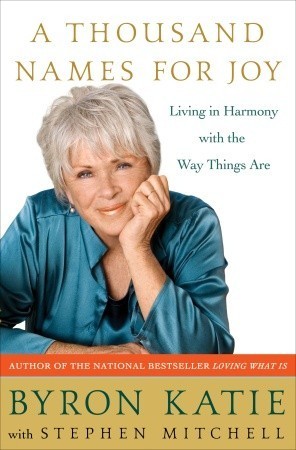What do you think?
Rate this book


304 pages, Hardcover
First published January 1, 2007
I discovered that when I believed my thoughts, I suffered, but that when I didn’t believe them, I didn’t suffer, and that this is true for every human being. Freedom is as simple as that. I found that suffering is optional. I found a joy within me that has never disappeared, not for a single moment.
I used to spend a lot of time in the desert. I would just walk, with no destination. I would walk straight, even if the path turned right or left, because I understood that there was no way to be lost. I often didn’t know where I was or how to get back to familiar ground. But I was living with the certainty that wherever I was, that’s where I was supposed to be at that moment. This is not a theory; it’s the literal truth. If I think that I’m supposed to be doing anything but what I’m doing now, I’m insane.
The voice within is what I honor. It’s what I’m married to. This life doesn’t belong to me. The voice says, “Do the dishes”—okay. I don’t know what it’s for, I just do it. If I don’t follow the order, that’s all right, too. But this is a game about where life will take me when I do follow. There’s nothing more exciting than to say yes to such a wild thing. I don’t have anything to lose. I can afford to be a fool.
This morning I had the thought to shower, and I notice that I stayed with the e-mail. I find that fascinating. Showering was a wonderful idea. Will it move to that or not? It’s exciting to wait and watch and allow life to move at its own pace as it continues to do what it does. For no reason, when a few dozen e-mails are finished, the body rises. Where is it going? It thinks it’s going to the shower, but there’s no way to know, not ever, until it’s standing there in the shower stall, turning the knob. And until the water comes out, there is still no way to know if a shower will happen. As the water pours over my body, the thought arises, “What a wonderful idea!”